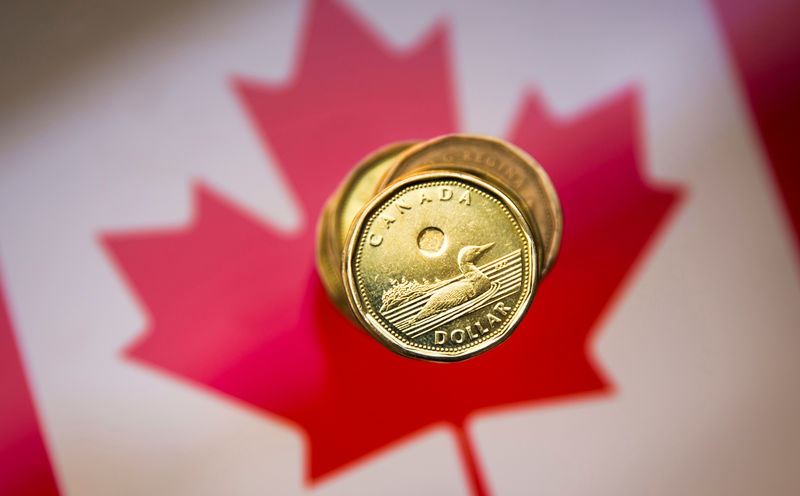By Fergal Smith
TORONTO (Reuters) - The Canadian dollar will rally over the coming year, according to currency strategists in a Reuters poll who raised their forecasts for the currency as a deal to revamp the North American Free Trade Agreement reduced economic uncertainty.
The loonie has rallied as much as 2.3 percent against the U.S. dollar since last Thursday, helped by a last-minute deal to salvage NAFTA. On Monday, it touched its strongest in more than four months at C$1.2783.
The latest poll of more than 50 market strategists predicted the currency would nudge up to C$1.2800 to the greenback, or 78.13 U.S. cents, in three months, from the C$1.2878 it was trading around on Thursday.
The currency is then expected to climb to C$1.2500 in a year, stronger than the C$1.2600 forecast in September's poll.
"We are looking for the Canadian dollar to strengthen over the next 12 months," said Eric Theoret, a currency strategist at Scotiabank.
Removing the threat of tariffs on autos clears "a huge cloud of uncertainty" for the economy and could give businesses the confidence to invest in new assets, Theoret said.
U.S. President Donald Trump threatened to impose tariffs on Canadian autos if a trade deal was not reached. The Bank of Canada forecast in July that trade uncertainty could subtract about two-thirds of a percent from gross domestic product by the end of 2020.
With the trade deal clinched, investors have raised bets for as many as four additional interest rate increases from the Bank of Canada by the end of 2019.
"We now have the Bank of Canada hiking four times over the next 12 months, which will definitively put Canadian rates above everyone else except for the U.S.," said Greg Anderson, global head of foreign exchange strategy at BMO Capital Markets in New York. "What that tends to do is attract capital into Canada."
Foreign investment could also flow to Canada if the country resolve difficulties it faces in expanding the Trans Mountain oil pipeline, Anderson said.
Canada will not appeal a court ruling that overturned its approval of the pipeline project, opting instead for more consultations with aboriginal groups unhappy about the plan, a top official said on Wednesday.
The price of oil, one of Canada's major exports, climbed on Wednesday to its highest since November 2014.
A larger-than-usual discount for Canada's heavy crude has reduced some benefit for Canada of higher oil prices.
Western Canada Select (WCS) oil traded on Tuesday for $42 per barrel less than West Texas Intermediate light oil, near its biggest differential in data going back to 2010, according to Shorcan Energy Brokers.
But Scotiabank expects the discount to narrow over the next one to two years and for the U.S. dollar to weaken, boosting commodity prices.

"Canada will get to benefit on the back of an improvement in our terms of trade," Theoret said.